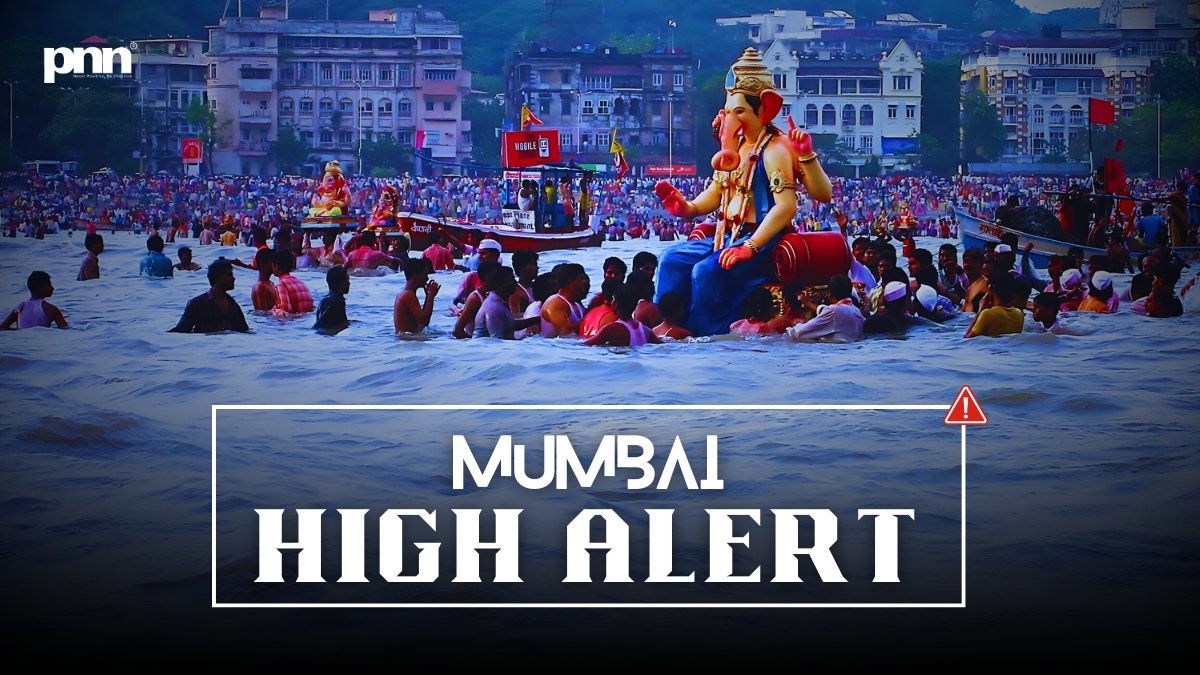Mumbai (Maharashtra) [India], September 5: The business capital of India is in lockdown mode. A WhatsApp threat claiming 14 Pakistani terrorists, 34 bomb-rigged vehicles, and 400 kilos of RDX has pushed the city into high alert, just as Anant Chaturdashi crowds build up.
A WhatsApp Message, A City on Edge
The threat came straight to the official WhatsApp number of Mumbai Traffic Police. The sender, claiming to represent a group called Lashkar-e-Jihadi, bragged about planting 34 “human bomb” vehicles across the financial capital. The promise? Blasts strong enough to “shake Mumbai.”
The message also claimed that 14 terrorists from Pakistan had already crossed into India, loaded with 400 kg of RDX. Now, whether that’s real or bluff doesn’t matter, because Mumbai Police don’t gamble with lives.
Police Go Public: “We’re Not Taking Chances”
A senior Mumbai Police spokesperson confirmed the threat, stating clearly:
“Traffic Police in Mumbai received threats over their official WhatsApp number. A claim has been made that 34 bombs have been planted in vehicles across the city. The organisation, calling itself Lashkar-e-Jihadi, says that 14 Pakistani terrorists have entered India.”
That’s as blunt as it gets. No sugarcoating. The Anti-Terrorism Squad (ATS) is now on the case, backed by central security agencies.
Security Grid Tightens
Mumbai looks different today. Here’s what has changed:
- Extra cops at every Ganesh pandal and immersion route.
- More nakabandis (roadblocks) than you can count.
- Vehicle checks, random frisking, drone monitoring.
- Airports, railway stations, malls, and markets on watchlist.
- Cybercrime unit racing to trace the WhatsApp origin.
Mumbai Police have one more request: don’t play detective, don’t spread rumors. Spot something suspicious? Call it in.
Timing Couldn’t Be Worse
Ganeshotsav isn’t just a festival. It’s Mumbai’s heartbeat. Millions flood the streets, idols head to the sea, and traffic goes off the charts. And Saturday’s Anant Chaturdashi is the finale.
Terror groups know the value of timing. Packed crowds mean maximum chaos. Throw in a reference to RDX, used in past India terror attacks, and the alert level jumps even higher.
India has seen this playbook before. The fear is real.
Investigations: Hoax or Horror?
Police aren’t ruling anything out. Current focus:
- Digital footprint: Trace the sender’s location.
- Intel cross-check: Any chatter about infiltrators?
- Forensics: Scrub the message for metadata.
- Central coordination: NIA is in the loop.
One ATS officer summed it up off-record:
“We can’t dismiss this. Until it’s ruled out, Mumbai stays on edge.”
That’s the only way to play it.
What Citizens Must Do
Police advisory is simple, practical, and worth repeating:
- Don’t spread WhatsApp forwards that scream “breaking news.”
- Cooperate at checkpoints, yes, even if it slows you down.
- Report abandoned vehicles, bags, or shady characters.
- Expect longer travel times during Anant Chaturdashi.
This is a city that’s survived 1993, 2006, and 2008. Mumbai knows how to handle pressure.
India Context: Why This Matters
Pakistan-linked terror threats are not new. What’s new is the medium, WhatsApp, not coded letters or satellite phones. Tech makes hoaxes easier. It also makes digital footprints harder to erase. For India, this alert is a reminder: vigilance is non-negotiable, especially during mass festivals when the world is watching.
Bottom Line
Mumbai has been here before and beaten the odds every time. This latest terror threat may end up being smoke. But no one’s betting the city on it.
Police, ATS, and intelligence agencies are treating it like gospel until proven otherwise. Citizens have one job: stay alert, stay calm, and don’t let fear do what terrorists dream of. Anant Chaturdashi will test Mumbai’s resilience. History suggests the city will pass, again.
Final Thoughts
Fourteen infiltrators and 34 bomb-cars? That’s not a prank call you ignore. What irritates me is the timing. Festivals are supposed to unite us. Instead, some faceless clown thinks a terror text can rattle India’s financial capital. Here’s my take: if your best strategy is spamming Mumbai Police’s WhatsApp, you’ve already lost. This city runs on grit, and it doesn’t bend for threats.

